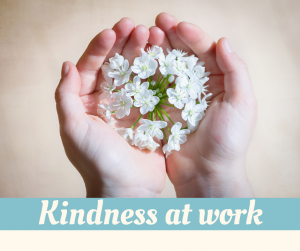
This week 18-24 May is Mental Health Awareness week.
Over the last few months, there has been a raft of warnings that mental health will suffer in the wake of Covid-19. At this time, more than ever, it is vital for people to take an active interest in looking after their own mental health and being aware of how their behaviour can impact on the mental health of those around them. Encouraging this in the workplace must be a priority.
I’m not a mental health professional. But I do have a valid, useful role in helping people to stay mentally healthy and to notice when they need to access more specialist support.
What does it mean to you to “stay mentally healthy”?
Most of us can reel off a number of ways in which we try to look after our physical health, and actually the fundamentals of healthy diet, exercise and sleep are also beneficial for our mental health. Beyond that, the two key aspects for mental health are maintaining positive social connections, and having a constructive relationship with our inner self. This involves getting to know ourselves and to understand what nourishes us (sometimes referred to as our ‘coping strategies’) and what brings us down.
Just as we do not book an appointment with a medical specialist at the first sniffle (particularly not at the present time), we don’t and arguably shouldn’t see a psychotherapist the first time we notice we’re having difficulty coping.
We turn to our coping strategies.
We take a day off. Book a holiday. Go out with a friend. Start an exercise or a painting class. We talk to our boss. We ask for help from our partner, our family.
Don’t we?
No. Lockdown has severely limited our options. We can’t hug our mothers or go dancing with friends. Some of us can’t even leave the house. Our social connections have had to go virtual. The opportunity for a chat with a colleague at the coffee machine has disappeared.
On top of this we now feel guilty and ashamed. I ought to be able to cope. Many people are much worse off than me. I don’t want to be a burden. If I show my boss I’m struggling then I will be first in line for redundancy. I don’t need help…..
And then it’s too late. We are in crisis. We are burnt out. Depressed. Anxious about everything. We can’t face getting out of bed let alone another Zoom call. We might admit we need that psychotherapist or counsellor but there’s a 12-week wait on the NHS. Things spiral downwards. Our physical health deteriorates. The unthinkable becomes reality.
We have to stop this! Prevention is so much better than cure.
The theme of this year’s Mental Health Awareness week is Kindness. Kindness breeds connection. Kindness nurtures self-esteem. We all understand the value of a kind word, a smile, a surprise bunch of flowers, someone bringing you a cup of tea, but what about kindness in the workplace? It may be cliched but little by little kindness goes a long way.
Consider that tipping point when things are starting to get on top of you. What if…
- someone asked you how you are… (fine thanks)…. and then asked you again? And took time out of their day to really listen?
- someone noticed you are not your usual chatty self and checked in with you?
- a colleague noticed you working late and asked if they could help?
- a peer complimented you on how you handled the discussion in your project meeting?
- the Zoom meeting chair gave everyone an opportunity to speak without being interrupted, and that “I’ve nothing to add, thanks” was a perfectly acceptable answer?
- admitting a mistake was valued for the learning it brings?
- accessing the support of an EAP or coach was actively encouraged, and employers led by example?
- your manager was open about their own struggles managing remote working and home-schooling?
All of these small acts of kindness in the workplace (wherever that might be) add up and make a big difference. When people feel valued and appreciated for being themselves and feel safe to contribute, stress is reduced and mental wellbeing improved. Kindness is contagious and before you know it you have a tight-knit team who support each other, is creative and collaborative and productivity rockets.
On top of this research shows that being kind is good for your own mental health as well as that of the recipient so it really is win-win.